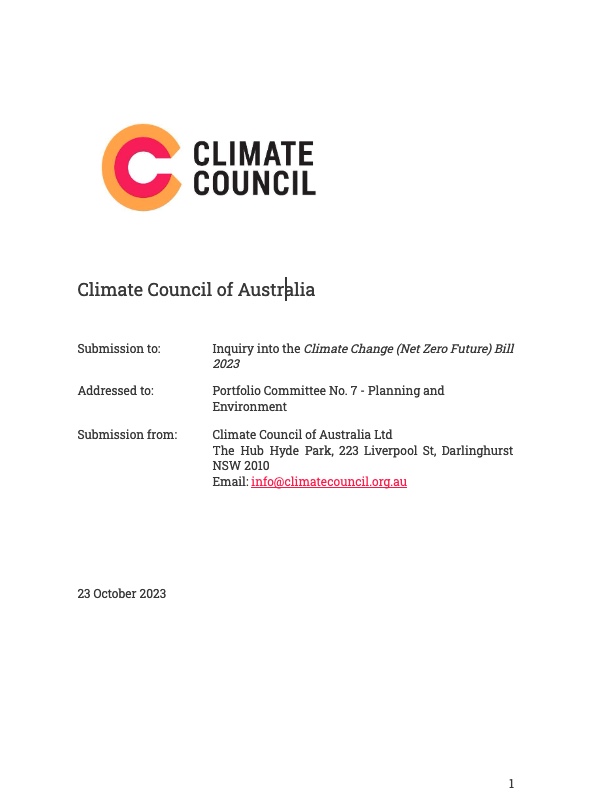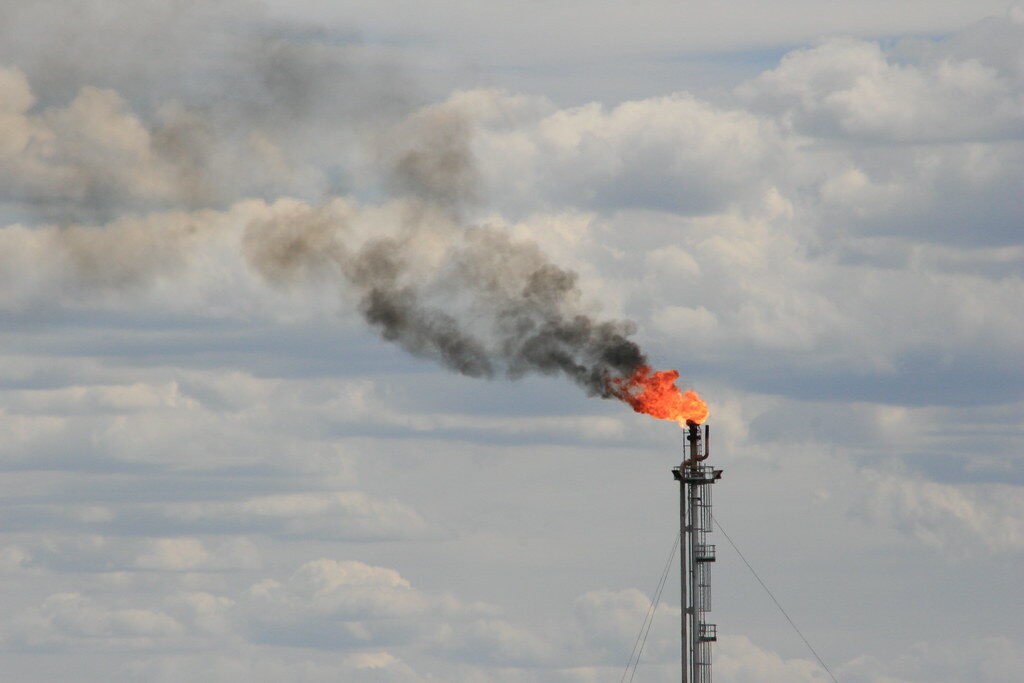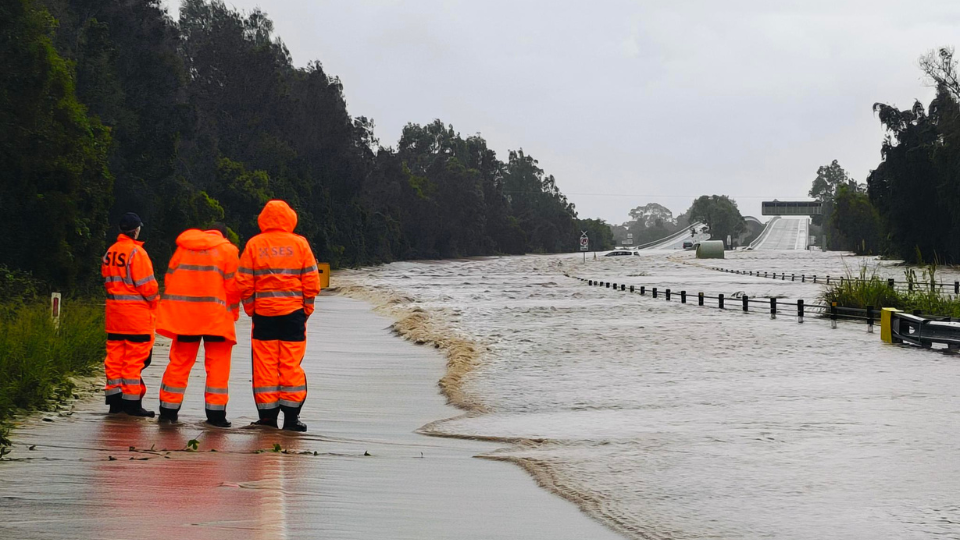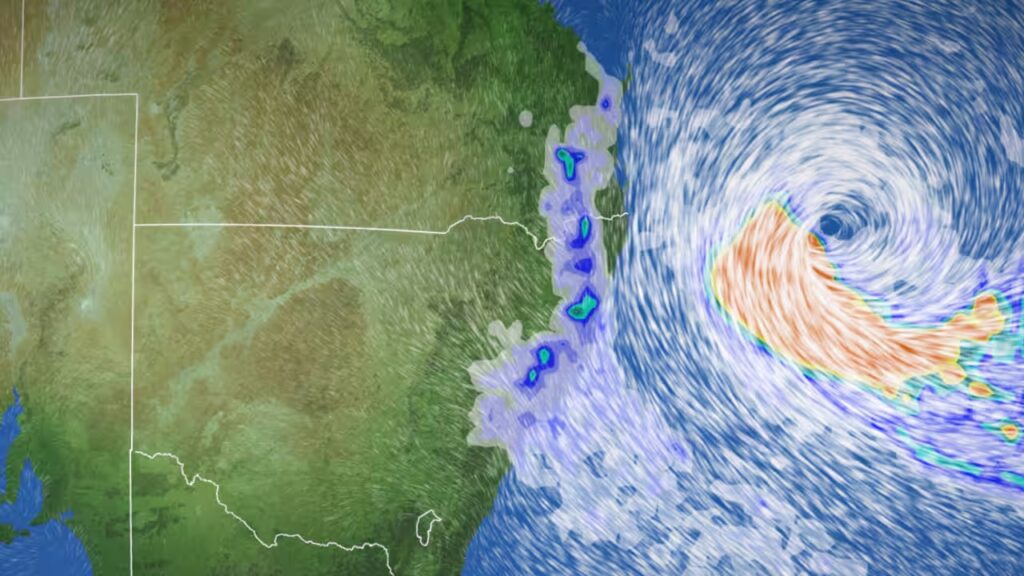The Climate Council welcomes the opportunity to comment on the New South Wales’ Climate Change (Net Zero Future) Bill 2023.
Legislating climate targets and establishing a framework for monitoring progress towards them is a critical step in advancing climate action. It provides communities, businesses, and investors with a clear roadmap for decarbonisation and ensures that regions can reap the benefits of early and decisive action. To fully realise this potential, the Net Zero Future Bill should outline a comprehensive plan for significant and rapid emissions reductions in this current decade, aligning with the urgent scientific imperative to avert the most devastating impacts of climate change.
The Climate Council’s recent report, titled “Mission Zero: How Today’s Climate Councils Will Reshape Australia” (2023a), underscores the urgency of this mission. We are already witnessing the devastating effects of climate change on New South Wales, including unprecedented wildfires, destructive floods, and extreme heat waves. A predicted hot, dry and dangerous 2023-24 summer will further emphasise the importance of mapping out a strong pathway for emissions reduction in New South Wales.
New South Wales as a significant emitter in terms of domestic emissions and the most populous state, it bears a responsibility to take swift and decisive action to reduce emissions in this crucial decade. The Climate Council’s analysis of the latest climate science and available carbon budgets shows that effective action means reducing emissions by 75% from 2005 levels by 2030 and achieving net-zero emissions by 2035 nationally. New South Wales can play an important role in achieving these targets to protect its residents – and all Australians – from further climate harm.
Mission Zero highlights that further delays in taking action will lead to irreversible damage to ecosystems, economies, and public health. We urge all Australian governments to accelerate the transition to renewable energy and clean technologies, cease the approval and funding of fossil fuel projects, and facilitate a significant shift towards electrified public transport and active transportation, such as walking and cycling. The Net Zero Future Bill can guide these efforts throughout the New South Wales economy.
This transition also brings substantial opportunities for New South Wales, particularly in its new energy potential, with wind and solar creating jobs in the regions and cheaper energy driving down bills for households. Given that climate change is already jeopardising lives and livelihoods in New South Wales, and coupled with the immense potential in renewable energy, the Net Zero Future Bill should establish a strong pathway that sees the state play its part in limiting global warming as close as possible to 1.5°C. This submission outlines how the Net Zero Future Bill can be strengthened to achieve this goal.
Summary of recommendations
Recommendation 1: Earlier targets
The Climate Council recommends revising the net-zero target to an earlier date, such as 2035, in line with the latest scientific findings and international commitments. By changing the net-zero target to 2035, the Government can demonstrate a commitment to science-based climate action. The New South Wales Government should also take the opportunity presented by this bill to set and work towards a 75% emissions reduction target for 2030.
Recommendation 2: A ratchet mechanism
The Climate Council recommends incorporating a ratchet mechanism akin to the one in the Federal Climate Change Act 2022 into the Bill. This mechanism would require periodic evaluations of climate targets, ensuring they are continually strengthened. Importantly, this mechanism would preclude any backsliding or regression in setting targets.
Recommendation 3: A coordination council
Chaired by the Premier of the State, the Government should establish a Ministerial Council on Climate Action to serve as the central coordinating body for climate-related initiatives across all governmental portfolios in New South Wales. This high-level council would ensure the State’s climate policy is cohesive and science-aligned.
Recommendation 4: Mitigation and adaptation planning and a climate change risk assessment
The Climate Council recommends that the NSW Government enhance the Climate Change Bill by incorporating provisions mandating the development of mitigation and adaptation plans at regular intervals. These intervals should align with each budget period, occurring at intervals of 5 years and should be underpinned by a climate change risk assessment.
Recommendation 5: Link legislated targets to decisions under other Acts
The Climate Council recommends that the Net Zero Future Bill follow the example set by the Federal Climate Change Act 2022 by establishing a mechanism that links its targets to decisions made under other legislation. By establishing these linkages, the Bill can ensure that emissions reduction targets are not isolated but integrated into other types of decision-making and policy implementation, ultimately driving better climate and economic outcomes for New South Wales.
Recommendation 6: Additional positive amendments
The Climate Council recommends amending these clauses within the Bill to strengthen it, in line with the discussion at pp.9-11:
- Paragraph 8(4)(a)
- Paragraph 8(8)(b)
- Paragraph 8(8)(f)
- Section 9
- Section 12
- Subsection 14(2)
- Paragraph (14(2)(e)











